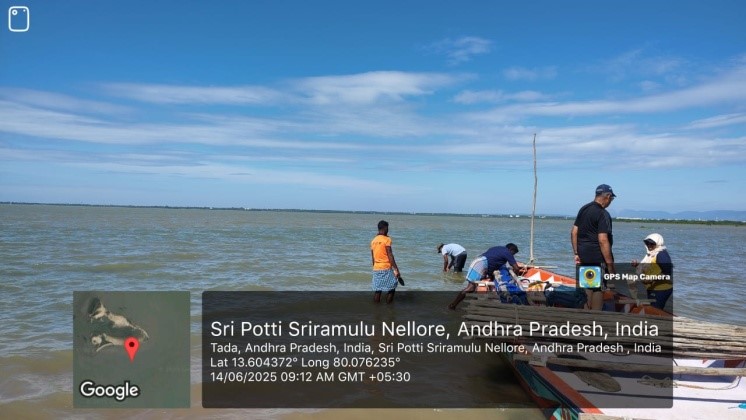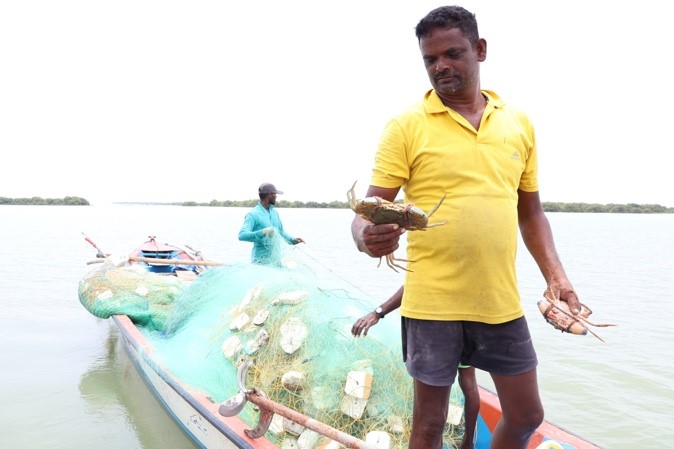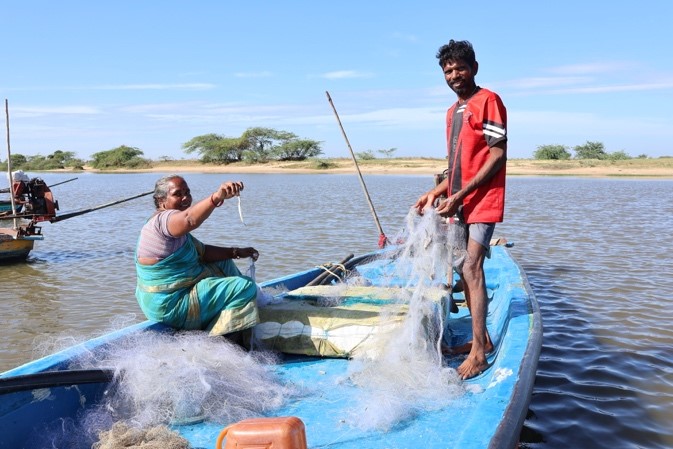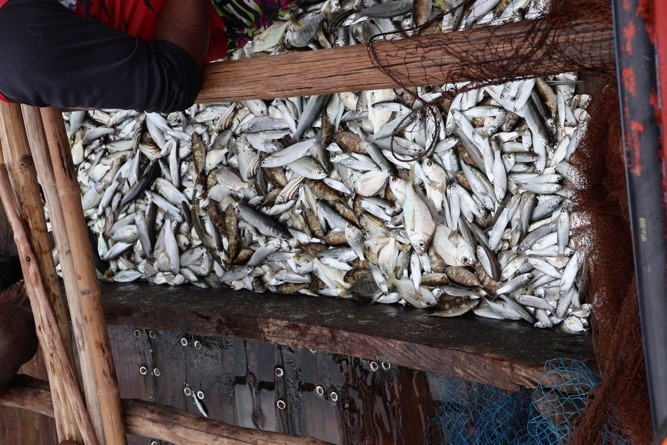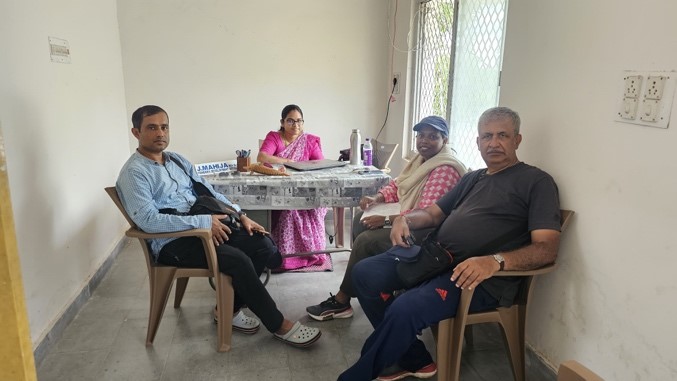Overview
Publications
Recruitment
Intranet
CIFRI Corners'
Pulicat Lake, situated along the Coromandel Coast, is the second-largest brackish water lagoon in the country. The Pulicat Lake fishery is a vital economic resource for the local fishing community, which also strengthens rural economy and associated sectors like seafood processing and marketing. A multidisciplinary scientific team from ICAR-CIFRI, Barrackpore, conducted a comprehensive study of the Pulicat Lake during 12-17 June 2025 to assess fish diversity, catch structure, habitat characteristics and ecological health as a part of the institute's ongoing project on "Assessing shifts in the fish diversity, environment, and fish species stocks with respect to the climate change scenario of Pulicat Lake.” The team constituted of Dr. S.K. Das, Dr. D. Bhakta, Dr. Canciyal Johnson, and Hansraj Kumar carried out the work under guidance of Dr. Basanta K. Das, Director, and supervision of Dr. S.K. Manna, Head of the REF Division of ICAR-CIFRI.
